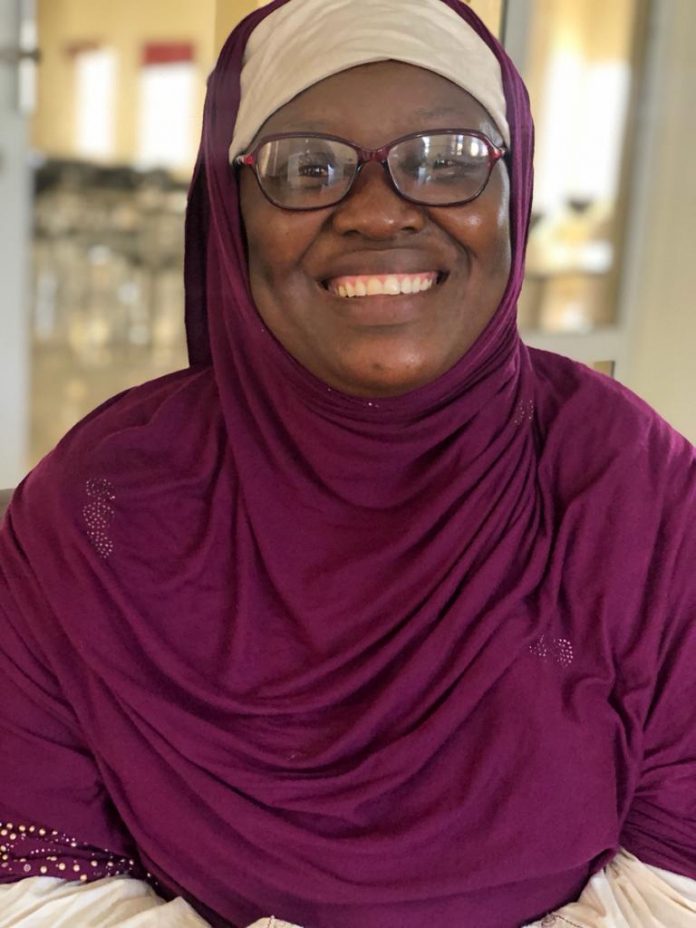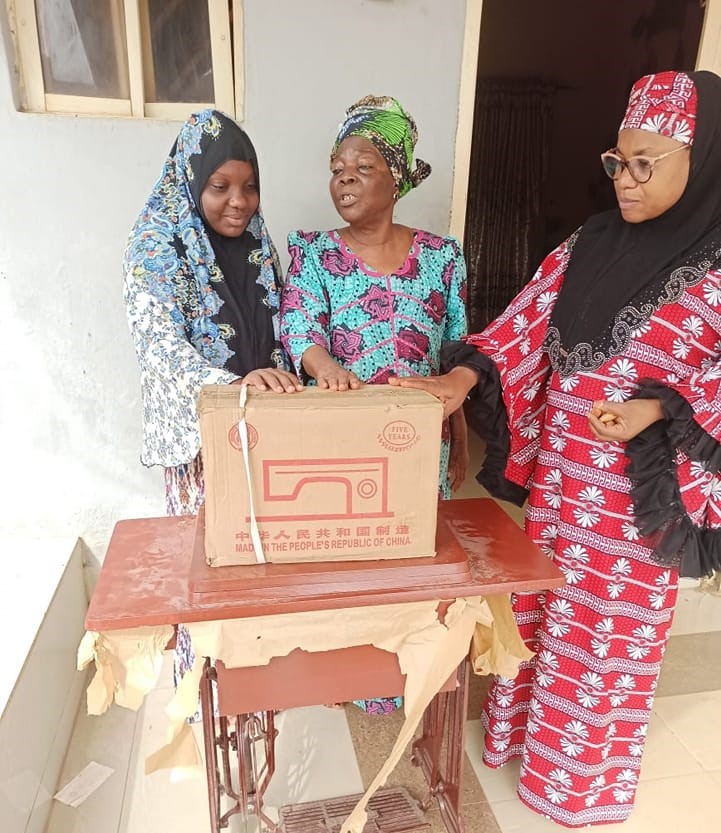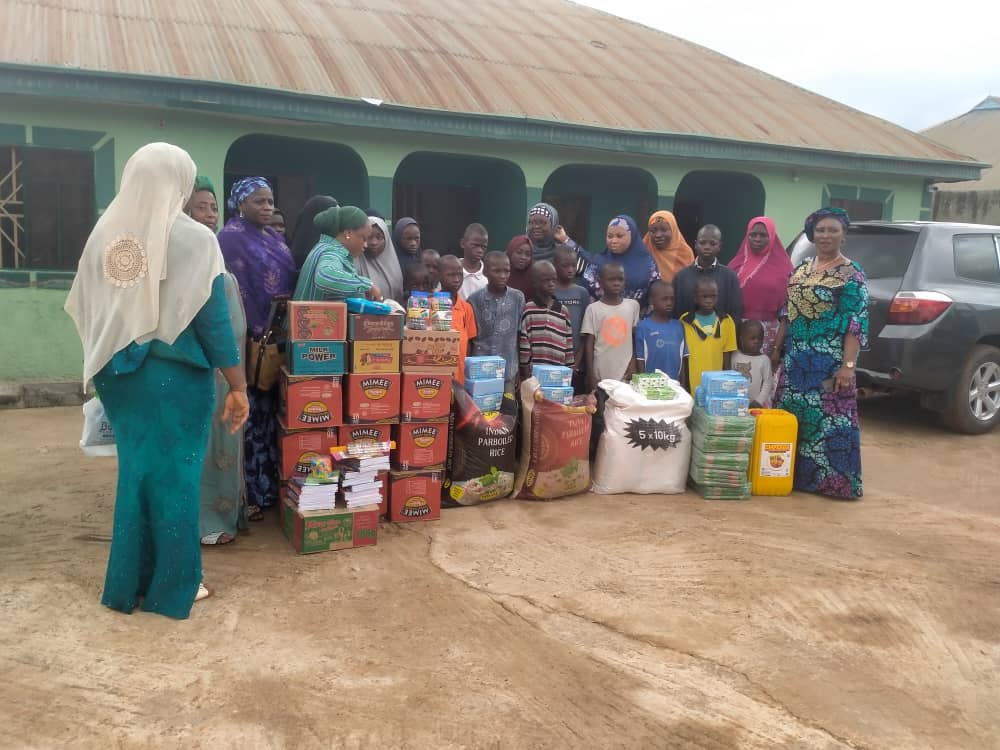For Abdulateef Halimah, life became a harrowing ordeal after her husband’s passing in April 2021. Before his death, Halimah’s daughter had been enrolled at Kwara State University or KWASU in northcentral, Nigeria.
Halimah’s modest income was never sufficient to cover her children’s school fees alone. However, her husband’s supplemental income had previously helped alleviate this financial burden. His sudden death plunged Halimah into despair, forcing her to sell some of her property, including land, to fund her daughter’s education.
At 52, and a mother of four, the double burden of providing for her children and paying for an expensive university education without a partner took a toll on her. “Everything crumbled. I couldn’t cope any longer and became afraid, thinking that heaven was coming down,” she recalled, her voice heavy with emotion.
“I faced numerous challenges, including medical, financial, and psychological difficulties.” she lamented.
Halimah’s plight is shared by many of Nigeria’s estimated 15 million widows, most of whom live in abject poverty. Widowhood can drastically reduce living standards, with research showing an average 18% drop in income, pushing 10% of women who were above the poverty line into poverty after losing their spouses. This mirrors a global trend, as nearly one in ten widows worldwide faces extreme poverty, according to the United Nations.
Beyond the financial hardships, widows often endure discrimination, stigmatization, and harmful traditional practices, compounding the emotional toll of grief and loss.
Yet, organizations like the Pious Muslim Women Organization offer a lifeline. This women-led group is actively working to reverse the cycle of poverty by offering financial support, including grants and sometimes loans, to widows in need. By providing resources and opportunities, the organization aims to empower these women to rebuild their lives, regain financial independence, and escape the economic insecurity that often accompanies widowhood.
Inspired by faith
In 2014, WW, a professor of education at the University of Ilorin, in Kwara State, started the Pious Muslim Women as a way to promote “Da’wah,” an Islamic program aimed at enlightening both believers and non-believers about Islam. The program began as a fellowship of Muslim academics at the university.
Over time, the group expanded beyond the university community and started encouraging members to pool resources to assist vulnerable individuals. “I added a few of my friends to the initiative so that it wouldn’t be just my voice. We started counselling people on their careers and other aspects of life, including health-related issues,” Yusuf disclosed.

Since inception, the Pious Muslim Women has reached more than 3,500 widows with its programs, including the disbursement of loans of a minimum of 100,000 naira each to 11 women currently. “We increase the loan amount available based on the widow’s repayment performance,” the organization says on its website.
Pious Muslim Women have also provided cash grants to some widows and have built a house for a widow with a physical disability. Some widows also receive monthly upkeep allowances.”
In 2017, 2018, and 2019, the organization allocated approximately 2 million naira, 5 million naira, and 8 million naira, respectively, to their annual Ramadan Feeding Program, which provides food to widows and the needy during the Muslim fasting season.
Yusuf also said the organization also runs an orphanage, currently housing about 26 children and providing them with love and care.
Plea for Zakat
As a group with members across different continents, Pious Muslim Women Organization utilizes social media for its fund raises, appealing to both members and non-members to contribute to their course.
The organization also solicits for Zakat, a pillar of Islam that requires Muslims to give a portion of their wealth to charity. It is considered an act of purification and a way to express gratitude to God for one’s blessings. Zakat is typically calculated as a percentage of a person’s savings or wealth, and when received by the organization, is distributed to those in need, including the widows.
Stressing the impact of the organization’s efforts, Saudat Hamzat, who coordinates and manages the organization’s affairs, revealed that organization’s sometimes get in-kind donations “like grinding machines, washing machines, and sewing machines, especially during Ramadan, when people normally give Zakat.”

Need for More
Despite its progressive efforts, the Muslim women’s organization continues to face challenges in supporting widows. One of the main hurdles, according to Yusuf, is that the organization cannot assist everyone who seeks help. “We are just like a group of friends, sisters, contributing together,” she explained.
Yusuf also highlighted issues with some beneficiaries misusing funds. “Some people submit business plans, but once they receive the funds, they divert it to other things,” she noted.
However, despite these challenges, the organization’s impact on the lives of widows like Halimah is profound. In 2021, Halimah was confiding in her sister, Binta Mora, about her struggles when Binta mentioned the work Pious Women was doing. After verifying Halimah’s story, the organization provided her with a cash grant of 1.2 million naira, along with psycho-social support and food supplies.
“They helped me to release all my pains,” Halimah shared. “I am forever grateful to them,” she added joyfully.
This story was produced with the support of Nigeria Health Watch through the Solutions Journalism Network, a nonprofit organisation dedicated to rigorous and compelling reporting about responses to social problems.
Abdulateef Halimah faced severe financial and emotional challenges after her husband's death in April 2021, struggling to support her four children and finance her daughter's education at Kwara State University. Her situation is similar to many of Nigeria’s estimated 15 million widows, who often fall into poverty due to a significant loss of household income and face discrimination and hardship. Organizations like the Pious Muslim Women provide a lifeline by offering financial aid, loans, and resources to help widows regain financial independence.
Founded in 2014 by Professor Yusuf Hamdallat Taiwo, the Pious Muslim Women aims to uplift the lives of widows through various support programs. The organization has assisted over 3,500 widows, offering cash grants, loans, and household necessities. They also run an orphanage and have dispersed millions in their annual Ramadan Feeding Program. Through social media and zakat, they encourage donations to support their cause. Despite their efforts, the organization encounters challenges, such as fund misuse and limited capacity to assist all in need. However, their support has profoundly impacted lives, as seen with Halimah, who received a significant grant and support, helping her overcome her difficulties.






